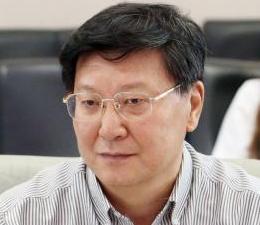To China, the tire trade truncheon looks more threatening than ever this time.
The World Trade Organization on September 5 rejected the Chinese appeal against punitive US tariffs on Chinese tire imports following a denial of the same Chinese complaint by a panel of the global trade watchdog last December. This tire export row, albeit lasting for two years since President Obama enacted the safeguard clause to impose punitive duties of 35 percent on Chinese tire imports in September 2009, seems to have resulted in a big Chinese sigh of “regret”.
The WTO ruling consists of far-reaching negative implications for China’s exports. To a large extent, other countries could follow the WTO’s verdict to impose corresponding levies against Chinese exports of other commodities. The grave global economic turmoil is still a long way from over, but trade protectionism, or its fervent sentiment, looms larger once again.
Trade battles are no surprise to China. As a rising and already mighty economic power in a short span of time, it has become accustomed to various trade disputes with other countries around the globe. As the Chinese Commerce Ministry claimed, China suffered the most anti-dumping lawsuits in 16 consecutive years up to 2010, and the most anti-subsidy lawsuits in five consecutive years. In its long-term struggle to deal with these trade disputes, Chinese government adopted a bilateral negotiation approach rather than letting complaints or appeals be dealt with by the multi-national WTO or other watchdogs. In tandem with its bilateral negotiations, China sometimes threatened retaliatory action against imports from the complainant. One outstanding example was the trade war between Japan and China in early 2001 when Japan took safeguard measures against three Chinese agricultural imports. As a tit-for-tat retaliation, China declared punitive tariffs on three Japanese industrial imports. Through a raft of subsequent discussion, both sides reached a rapprochement at the end of that year and cancelled punitive tariffs against each other. Eventually, this belligerant trade friction lasting for three hundred days was quelled, as if it never occurred at all.
After many years of WTO membership, China would like to behave according to its terms. Although it threatened to investigate imports of US poultry and vehicles into China after American safeguard measures were proclaimed, China filed a complaint and an appeal to the WTO, behaving like a responsible power on the world stage. But the two were ruthlessly dealt with, an unfair and unexpected result that made China wary of filing disputes to the multinational watchdog. Perhaps in the future, China will be more inclined to resort to bilateral negotiations in tackling similar trade disputes.
To a large extent, China is not in the least concerned when a trade dispute with another entity comes to the surface. The simple reason is that it has already opened wide its manufacturing markets to foreign investors, creating a chain of vested interests of foreigners while China exports the so-called “made-in-China” commodities abroad. In the tire case, many major world manufacturers, including the two US-headquartered behemoths Goodyear and Cooper, invested heavily in plants in China. Thus the majority of Chinese exported tires to the US were indeed manufactured by these global brands in China. What’s more, local tire distributors or importers in the US are another beneficiary of imported Chinese tires. When a trade battle breaks out, these manufacturers and distributors would be expected to stand up strongly to help China resolve the dispute which would otherwise damage their own interests. The one country which is moving to impose punitive tariffs against Chinese exports should be conscious of balancing the diversely various interests of its own manufactures in China, its local distributors and its aggrieved blue-collar workers. In many trade battles, China has rarely been the loser because in itself it was not the only beneficiary. Nonetheless, the latest WTO ruling, following President Obama’s decision two years ago to impose a safeguard clause against Chinese exported tires, underpins the impression of a US government preferring to safeguard the special interests of American workers.
The driving force for this new US government move is popularly viewed as a strategy linked to the domestic economic turmoil it has been battling since 2008 and the subsequent intensifying political rivalry. The American economy has yet to bottom out. Rather, its unemployment rate is still lingering dangerously high, posting 9.1% in the latest month. Importantly, the 2012 election year is looming, in which politicians reassure the electorate with inflated promises of job guarantees. Just over one week ago, Republican presidential contender Buddy Roemer stood in front of the Chinese Embassy in D.C. and made his unpopular jobs speech. He claimed “China is the bear in the room eating jobs and no one pays attention,” and promised “I will get the bear out of the room."
The tire export row is the first such case of a safeguard provision used against China, and it is President Obama’s administration that took the action. In the eight years of President Bush’ s administration, it rejected taking such action in four similar cases it reviewed. So it is anticipated that the US’s protectionist sentiment, which in part feeds the needs and interests of the political game, will not evaporate in the short term, giving rise to the possibility of further trade friction against China.
So do not be surprised if the protective tariff against Chinese tire exports is extended in the future. According to the agreement of China’s accession into the WTO, American safeguard provisions against Chinese exports had a window of only three years. That window will close off next September, one year earlier. In the true spirit of global free trade, the extra nickels caused by the punitive tariff against China’s tires will definitely not trickle down to US workers and US domestic tire makers. Indeed in the past two years, competitive tire suppliers in other developing countries, like Brazil and Mexico, divvied up the American tire market from which the Chinese tire was expelled. The US has gained nothing. Its unemployment rate in the tire sector is still climbing. In addition, consumers paid higher tire prices, and more tire imports from other countries flooded in. However, though the cost of the safeguard measure was clear to all sides, the politically motivated protection of special interests will triumph. And the protesting voices of other interest groups, like manufacturers and consumers, will become mute, particularly in the run-up to the election. Perhaps it is the expected cost of democracy.
Ding Dou is associate professor in School of International Studies at Peking University.



